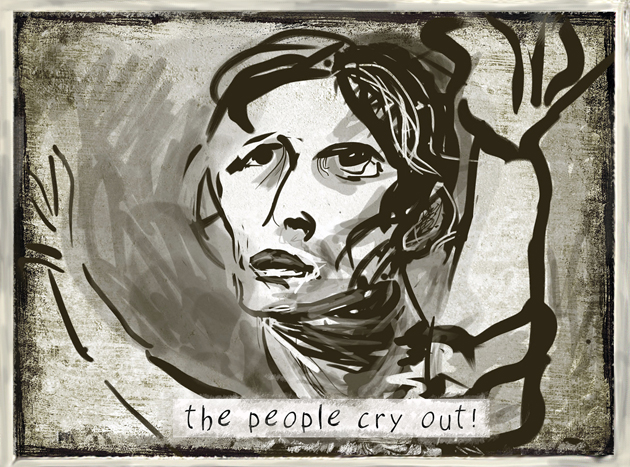Deconstructing Panty Pennants and Revealing Absent Presence
DOI:
https://doi.org/10.18432/R20593Palabras clave:
poststructural, deconstruction, gender, reflexivity, subjectivity, identityResumen
More multifaceted than the mere titles we maintain—as daughters, sisters, wives, and teachers, for example—sexuality is a part of our identity worth exploring and honoring. Women’s stories, gathered in a questionnaire, highlight sexual identity in Panty Pennants—an exhibition held in late 2012 at the Leedy-Voulkos Art Center in Kansas City, Missouri. The author uses a process of thinking with deconstruction to explore various texts from the exhibition. In doing this, she learns to hear silence, to see women as multi-dimensional, and to disrupt culturally learned hierarchies of unearned privilege and oppressive power for purposes of gender equity and social justice.
Citas
Anderson, T., & Milbrandt, M. (2002). Art for life: Authentic instruction in art. New York, NY: McGraw-Hill.
Andrews, S. J. (2010). A Puritan’s women’s perspective: The captivity narrative of Mary Rowlandson. Études Historiques, 2(1), 1-21. Retrieved from http://etudeshistoriques.com/etudeshistorique/article/view/15/11
Brekhus, W. (1996). Social marking and the mental coloring of identity: Sexual identity construction and maintenance in the United States. Sociological Forum, 11(3), 497-522.
Brekhus, W. (1998). A sociology of the unmarked: Redirecting our focus. Sociological Theory, 16(1), 34-51.
Caputo, J. D. (Ed.). (1997). Deconstruction in a nutshell: A conversation with Jacques Derrida. New York, NY: Fordham University.
Chicago, J. (1975). Through the flower: My struggle as a woman artist. Garden City, NY: Doubleday.
Colebrook, C. (2002). Gilles Deleuze. New York, NY: Routledge.
Deleuze, G. (1990/1995). Negotiations: 1972-1990. (M. Joughin, Trans.). New York, NY: Columbia University Press. (Original work published 1990)
Deleuze, G., & Guattari, F. (1987). A thousand plateaus: Capitalism and schizophrenia. Minneapolis, MN: University of Minnesota.
Deleuze, G., & Parnet, C. (1977/1987). Dialogues. (H. Tomlinson & B. Habberjam, Trans.). New York, NY: Columbia University. (Original work published 1977)
Derrida, J. (1972/1982). Of grammatology. (G. Spivak, Trans.). Chicago, IL: University of Chicago Press. (Original work published 1977)
Elliott, J. (2005). Using narrative in social research: Qualitative and quantitative approaches. Thousand Oaks, CA: Sage.
Jackson, A. Y., & Mazzei, L. A. (2012). Thinking with theory in qualitative research: Viewing data across multiple perspectives. New York, NY: Routledge.
Leavy, P. (2013). Fiction as research practice: Short stories, novellas, and novels. Walnut Creek, CA: Left Coast.
Lord, B. (2009). Introduction. In J. Mullarkey & B. Lord (Eds.), The continuum companion to continental philosophy (pp. 1-8). New York, NY: Continuum.
Mazzei, L. A. (2007). Inhabited silence in qualitative research: Putting poststructural theory to work. New York, NY: Peter Lang.
Richardson, L., & St. Pierre, E. A. (2005). Writing: A method of inquiry. In N. K. Denzin & Y. S. Lincoln (Eds.), The SAGE handbook of qualitative research (3th ed.) (pp. 959-978). Thousand Oaks, CA: Sage.
Ross, J. (2010). Traces of self: Online reflective practices and performances in higher education. Teaching in Higher Education, 16(1), 113-126.
Stankiewicz, M. A. (2001). In Roots of art education practice. Worcester, MA: Davis.
St. Pierre, E. A. (2011a). Post-qualitative research: The critique and the coming after. In N. K. Denzin & Y. S. Lincoln (Eds.), The SAGE handbook of qualitative research (4th ed.) (pp. 611-625). Los Angeles, CA: Sage.
St. Pierre, E. A. (2011b). Proceedings from AERA 2011: Philosophically informed research. New Orleans, LA.
St. Pierre, E. A. (2013). The posts continue: Becoming. International Journal of Qualitative Studies in Education, 26(6), 646-657.
Tedlock, B. (2011). Braiding narrative ethnography with memoir and creative nonfiction. In N. K. Denzin & Y. S. Lincoln (Eds.), The SAGE handbook of qualitative research (4th ed., pp. 331-339). Los Angeles, CA: Sage.
Descargas
Publicado
Cómo citar
Número
Sección
Licencia
Derechos de autor 2016 Art/Research International: A Transdisciplinary Journal

Esta obra está bajo una licencia internacional Creative Commons Atribución-NoComercial-SinDerivadas 4.0.
Authors who publish with Art/Research International agree to the following terms:
a. Authors retain copyright and grant the journal right of first publication and the right to sublicense the Contribution, in the form in which it is published by the journal, to others under the terms and conditions of the of the Creative Commons Attribution-NonCommercial-NoDerivs (CC BY-NC-ND) that allows others to download the work and share the work with others with an acknowledgement of the work's authorship and initial publication in this journal, but they cannot change the work in any way or use any part of the work commercially.
b. Authors are able to enter into separate, additional contractual arrangements for the non-exclusive public distribution and display of the journal's published version of the work (e.g., post it to an institutional repository or publish it in a book), with an acknowledgement of its initial publication in this journal.
c. Authors are permitted and encouraged to post their work online (e.g., in institutional repositories or on their website) prior to and during the submission process, as it can lead to productive exchanges, as well as earlier and greater citation of published work (See The Effect of Open Access).
d. Authors wishing to include items (such as images or other media, or any creative works of others whether previously published or not) must contact the original copyright holder to obtain explicit permission to publish these items in Art/Research International. Writing permission should include: the title(s) of any copyrighted work, original place of publication if applicable, and an acknowledgement of having read Art/Research International's copyright notice. Authors are responsible for obtaining this permission and keeping it in their own records for later verification.



